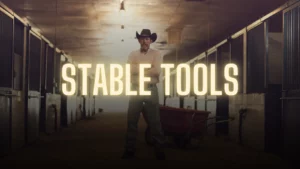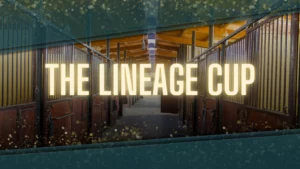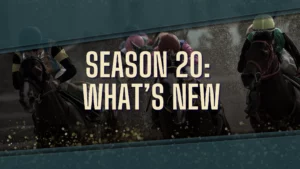
If there is one thing we’ve learned from the perseverance and eventual emergence of Photo Finish™ during the bear market doldrums, it’s that community matters.
Even in the worst times, the right people building the right things will always be on top, particularly in Web3, where the product is the people.
With those thoughts in mind, PFL recently caught up with Justin Shenkarow, who co-authored alongside web3 savant John Kraski the best-selling book “The Future of Community: How to Leverage Web3 Technologies to Grow Your Business,”
In our chat with Justin, we gathered his insights on the importance of online communities and why places like Discord, while still untapped by most traditional web2 companies, will soon become the norm.
PFL: Thanks for taking a moment to chat with Photo Finish™ LIVE! We were excited to read about your new book. Some of our team members even picked up a copy.
I know you’ve been an actor for some time, appearing in shows such as Eerie, Indiana, Home Improvement, The Fresh Prince of Bel-Air, Strong Medicine, and Boston Public, but can you share your journey in writing and involvement in Web3?
Justin: First, thank you very much! We’re so proud of the book and are grateful for the incredible community that helped us write it and all the support we’ve received!
My early journey was largely through writing kids’ TV shows like ‘Hey Arnold!‘ and ‘Spidey and His Amazing Friends.’
However, my most current career path has taken me through Web3, and it’s been exhilarating. It’s about crafting narratives and exploring blockchain’s impact on our online world. Connecting storytelling with Web3 concepts is exciting and a testament to a diverse career.

PFL: For Photo Finish™, Discord is the central communication hub between players. What is your take on how Discord and similar platforms will play a role in shaping the future of digital communities, especially in the context of Web3?
Justin: Platforms like Discord stand out when discussing Web3 and digital communities. Discord, as you know, is a melting pot where diverse voices from all corners of the internet, including Twitter and Reddit, come together.
Web3 is super interesting because it’s all about decentralization. It’s not just the technology itself but how it empowers people to connect uniquely.
It’s crucial to think about the structure and governance. You know, like figuring out who does what, how decisions are made, and using cool tools for consensus-based decision-making. Discord is great for this, but it’s not the only player in the game.
PFL: What is special about Web3 technologies, and why should even the most ‘offline’ individuals take notice?
Justin: Think of Web3 as the internet getting a major upgrade, where it’s all about giving power back to the people. It’s a big shift from our current internet, where a few big names have most of the control.
It’s about changing ownership, privacy, and value rules relevant for everyone in shaping a fair and user-driven internet.
So, why should someone who’s not super into the internet care? That will affect everyone because Web3 is changing the game’s ownership, privacy, and value rules.
It’s not just about being online; it’s about how the future digital world will work. Web3 is paving the way for a more fair and user-driven internet, which we all should keep an eye on, whether online all the time or just now and then.

PFL: Your book touches a lot on how DAOs. How do you believe they will foster community bonding, and what challenges they might face?
Justin: DAOs can really bring people together online. Since every member has a voice, it feels like a community where everyone’s opinion matters.
It’s not just a few people calling the shots; it’s a group effort. This shared decision-making can create a strong bond among members working towards common goals.
But there are challenges, too. The biggest one is probably making sure everyone stays on the same page. When you’ve got many people with different ideas, reaching a consensus can be tough.
Also, there’s the technical side of things. Not everyone’s a blockchain whiz, so making DAOs user-friendly is super important. Plus, voting and participation have become major stumbling blocks in the early days of DAOs.
DAOs have the potential to create tight-knit, democratic communities online, but they’ll need to navigate hurdles or any new revolutionary form of governance.
PFL: How will tokenization transform online interactions within Web3 gaming communities?
Justin: Tokenization in Web3 gaming communities is like adding a new interaction layer and reward. Imagine playing a game where the items you earn or buy aren’t just virtual but have real-world value as tokens. This means what you do in the game could have benefits outside of it, too.
In these communities, tokens can also change how players interact. They’re not just playing; they’re earning, trading, and contributing to the game’s development. It’s like being part of an economy within the game.
It’s not just about earning stuff, though. Tokenization can make gaming communities feel more invested in the game’s success. Players might have a say in new features or updates through token-based voting systems.
It’s like being a part of the game’s journey, not just a player. In Web3 gaming, tokenization transforms how players engage with games and each other, making the experience more interactive, valuable, and community-driven.
PFL: Why should traditional brands and businesses consider forming a Web3 community?
Justin: Forming a Web3 community is a big deal for any project, team, game, or brand because it’s like stepping into the future of customer interaction. In Web3 communities, everything’s more transparent and user-controlled. This means deeper, more genuine connections with your audience.
Why is this important? Because trust is everything. In a Web3 community, your customers or players can have a real say, maybe even own a part of your project through tokens. It’s not just about leaving a review; it’s about being part of the journey.
Will this replace Google Reviews, Yelp, or social media? Maybe not completely, but it sure adds a new dimension.
In Web3, feedback and interaction are more dynamic and engaging. It’s not just about leaving a star rating; it’s about being an active participant.

PFL: How will transparency and accountability in Web3 influence online communities, especially in business and government sectors?
Justin: In the world of Web3 gaming, where trust is a big deal, transparency and accountability are game-changers. For online communities in business and government, these principles are set to make a huge impact.
With Web3 tech, every transaction, decision, or interaction can be tracked and verified on a blockchain. This means businesses and governments can’t just talk the talk about being transparent and accountable; they have to walk the walk. Every action is out there for everyone to see. This level of openness can really build trust in these communities.
People will know what they see is the real deal, not something hidden behind closed doors. And when trust goes up, so does participation and engagement.
PFL: Fan tokens are quickly gaining popularity. What exactly is a fan token, and how is it implemented?
Justin: Fan tokens are really shaking things up in how artists and fans connect. They’re like special digital tokens that give fans some cool perks, like voting on an artist’s next song or exclusive merch. A great example is the music industry.
Some artists have already started issuing fan tokens, allowing their fans to influence decisions like setlists for concerts or designs for merchandise. It’s like having a VIP pass to be more involved in the artist’s creative process.
Bands like Kings of Leon have dived into this trend, offering special album versions and exclusive experiences to token holders. Influencers are getting in on the action, too. YouTuber Jake Paul launched his own fan token, giving his followers unique access to content and decision-making in his projects.
Looking ahead, I see this trend growing big time. Imagine fan tokens becoming a common thing across all sorts of entertainment – movies, gaming, you name it. Fans could directly impact the content they love, and artists get to build a deeper connection with their audience.
Fan tokens could be the norm for fans and artists interacting in a few years, making the fan experience more interactive and personalized. It’s an exciting shift about bringing artists and their fans closer together.

PFL: Wrapping up: What advice do you have for building a Web3 community? Asking for a friend, of course!
Justin: Understand blockchain basics, focus on community value, ensure transparency, leverage the right tools, and be adaptive.
It’s about creating an engaging, transparent community in the evolving Web3 landscape.
PFL: Book plug time! Where can people find your book?
Justin: It’s available on major platforms like Amazon, Barnes & Noble, and Target. This book is your gateway to understanding how Web3 reshapes our digital interactions. With my co-authors, we’ve poured our experiences and knowledge into these pages to make Web3 accessible and engaging for everyone. Plus, we brought over 30 experts in web3 to this book who provided invaluable insights.
What’s special about this book is that it’s not just about the tech; it’s about the people, the communities, and the transformative potential of Web3.
Whether you’re a newbie to the scene or already deep into the digital world, there’s something in it for you.
For more insights and detailed discussions on leveraging Web3 technologies for building vibrant digital communities, check out “The Future of Community: How to Leverage Web3 Technologies to Grow Your Business,” available at major retailers.





